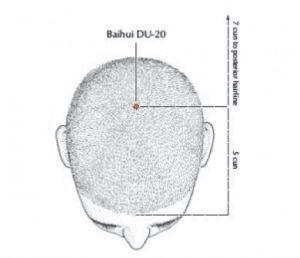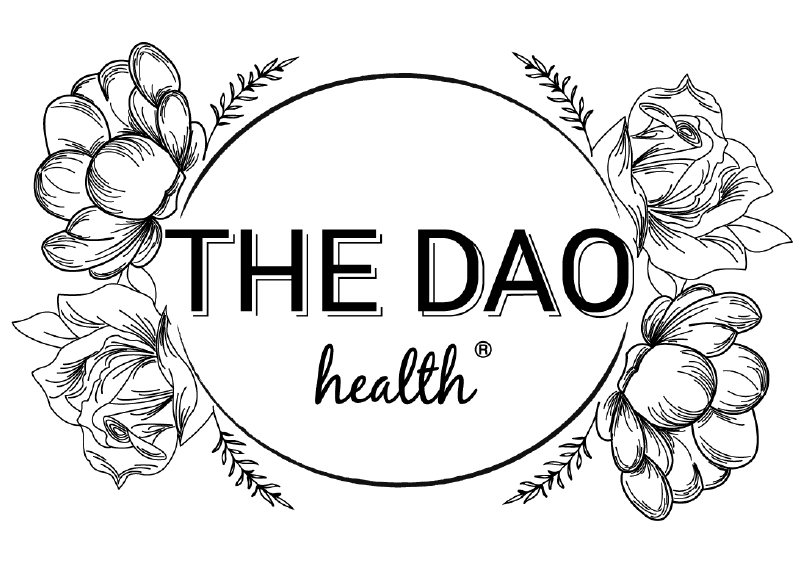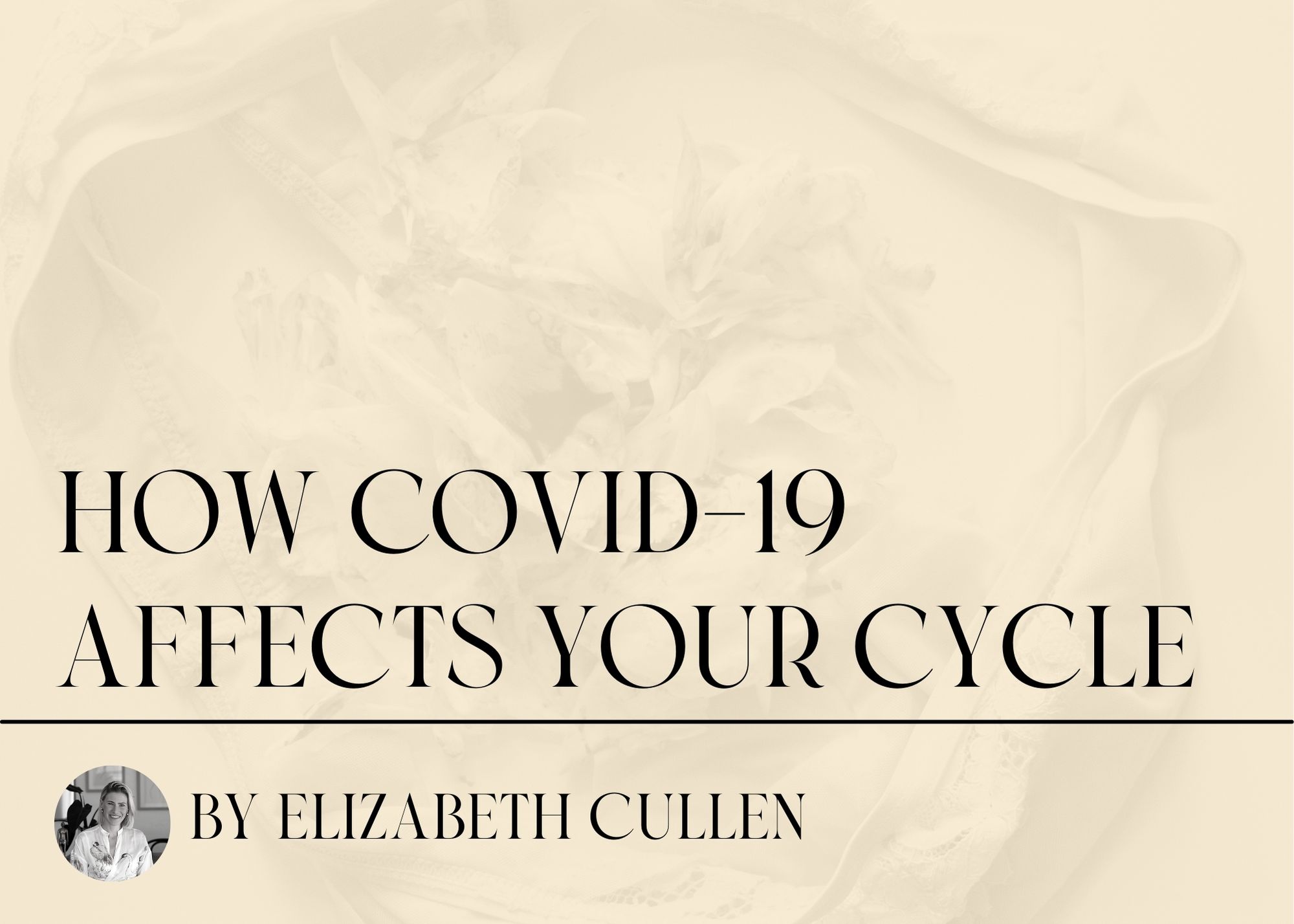The Dao Does ~ How COVID-19 affects your cycle
Since the beginning of the pandemic, discussions across the world were being had which indicated women were experiencing menstrual changes once being infected with Covid-19. In 2021, as Covid-19 became more prevalent here in Sydney, Australia I also began noticing this in clinic amongst my patients and how post-infection individual’s cycles were being affected differently, depending on where in their cycle they became infected.
Throughout the pandemic, more and more research has provided evidence of how Acupuncture and Chinese Herbal Medicine can support to reduce symptoms of COVID-19 and long COVID-19, in clinic I noticed how Acupuncture and Chinese Herbal Medicine also supported the recovery of the menstrual cycle ( Han et al. 2021 ). As research slowly begins to look into the physiological response that COVID-19 has on the cycle, we are now beginning to understand why from a medical perspective.
Throughout the first two years of the pandemic, it was difficult to find research about how COVID-19 affected the cycle as unfortunately, questions around menstruation had not been included in most large-scale COVID-19 studies. It is important to note that even outside a pandemic context, it is difficult to study and measure menstrual cycle features due to differing timing of ovulation and cycle variation although this means that it is not currently known how many people with a menstrual cycle had experienced menstrual cycle changes post-infection.
The research is beginning to slowly grow about how the menstrual cycle is affected by COVID-19. In 2021’s review from Bristol Medical school, The Covid-19 pandemic and the menstrual cycle: research gaps and opportunities, Sharp et al. reviewed 12 small studies reporting on menstrual cycle features during the pandemic and with COVID-19 illness.
The research is still early although we are now beginning to understand more about how COVID-19 affects each stage of the menstrual cycle. Let’s take a look into what we now know about how COVID-19 affects the menstrual cycle:
Ways that the menstrual cycle can be affected post-COVID-19 include:
– Infrequent cycles
– Heavy, longer, and more painful menstruation
– Irregular menstruation
How does COVID-19 affect the cycle?
Infrequent Cycles
COVID-19 illness can affect the hypothalamic–pituitary–ovarian–endometrial axis which is responsible to support regular ovulation and the menstrual cycle. This is the axis that sends messages from your Ovaries to your brain to support your hormones to bring on a regular cycle. Once affected and the messages are interrupted through the axis this can result in amenorrhea ( no period for over three cycles ) or infrequent cycles. To the body, this is a protective mechanism that enables the diversion of energy resources from reproduction to the immune response. It is also interesting to note, that the review considered the pandemic effects of psychological stress and change in weight as another cause of infrequent cycles.
Heavy, longer, and more painful menstruation
COVID-19 infection causes inflammation in the body which can cause an altered endometrial inflammatory response during the bleed, affecting the lining of the uterus which produces the menstrual bleed. This can cause increased pain, and heavier and longer bleeds.
Irregular Menstruation
Depending on the timing of the COVID-19 infection, ovulation – the main event of the menstrual cycle can be directly impacted leading to an irregular cycle by Ovulation being disrupted. Remember, you are unable to have a period without Ovulation and if the main event is disrupted through the infection of COVID-19 affecting hormonal production of Estradiol and Progesterone then the bleed will also be affected.
How can Traditional Chinese Medicine including Acupuncture and Chinese Herbal Medicine help to regulate the cycle post-COVID-19 infection?
Acupuncture treatment supports the connection of the Hypothalamic – Pituitary – Ovarian – Endometrial axis which in turn helps to regulate the cycle. By inserting needles into specific Acupuncture points the connecting ‘messages’ are encouraged again from the Ovaries and Uterus to the brain. In addition, by supporting blood flow to the Ovaries and Uterus through Acupuncture and Chinese Herbal medicine this helps to support Ovarian function and reduce inflammation in the uterus to improve menstrual bleeds, reduce pain, and support regularity.



Duration of treatment differs on the individual although a minimum of four weekly treatments of Acupuncture are recommended, with expectations of cycle support for at least three months.
How long an individual’s menstrual cycle is affected by COVID-19 infection can differ and can depend on when the period was infected in their menstrual cycle, how severe the infection was, if they experienced long COVID-19 symptoms and if they were vaccinated at the time of infection.
If you are not sure of the first steps in seeking guidance with an affected menstrual cycle post-COVID-19 infection I recommend seeing your GP for routine blood tests including testing your hormonal profile. Secondly, I recommend seeing an AHPRA-registered Traditional Chinese Medicine practitioner who is trained in Women’s Health. Please feel free to reach out and our team will be able to refer you to a practitioner local to you if possible.
Where to from here?
As the world continues to recover and adapt to a world with COVID-19 here to stay, we are in desperate need of further research to help understand the impacts that the pandemic has had on menstrual health which would not only help to build further support and treatment options for Women experiencing changes in their cycle but also help to minimise gender-based health and social inequalities. We are in an exciting period of medical research where the menstrual cycle is being considered a vital sign of a female’s health, let’s hope that further research and messages of awareness can be shared in our Women’s Health communities of the benefits that Acupuncture and Chinese Herbal Medicine can have on support women post COVID-19 infection.
Support services:
- St Vincent’s Long Covid-19 clinic
https://www.svhs.org.au/patients-visitors/covid-19
References:
Baker, K. Deadman, P. Al – Khafaji, M. 1998 A manual of Acupuncture, 2nd edition, Journal of Chinese Medicine Publications.
Han Z, Zhang Y, Wang P, Tang Q, Zhang K. Is acupuncture effective in the treatment of COVID-19 related symptoms? Based on bioinformatics/network topology strategy. Brief Bioinform. 2021 Sep 2;22(5)
Sharp GC, Fraser A, Sawyer G, Kountourides G, Easey KE, Ford G, Olszewska Z, Howe LD, Lawlor DA, Alvergne A, Maybin JA. The COVID-19 pandemic and the menstrual cycle: research gaps and opportunities. Int J Epidemiol. 2022 Jun 13;51(3):691-700.


